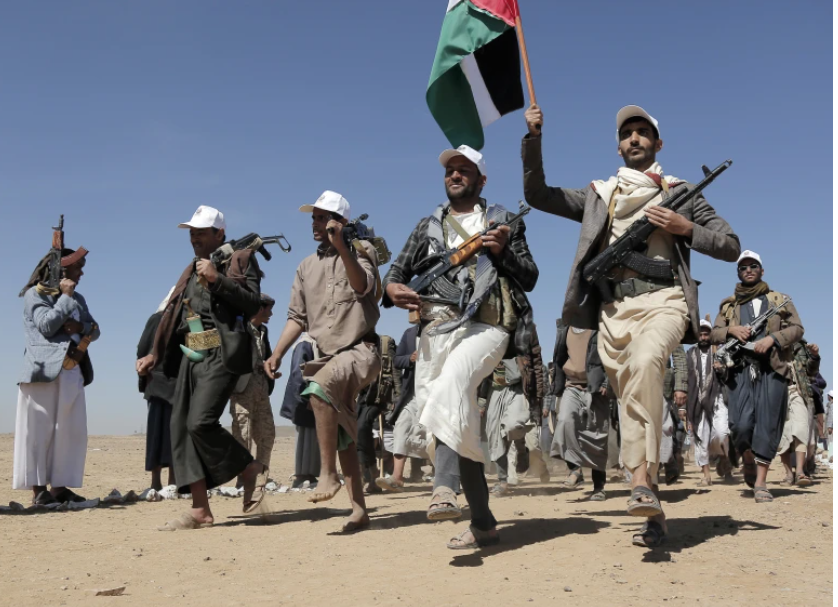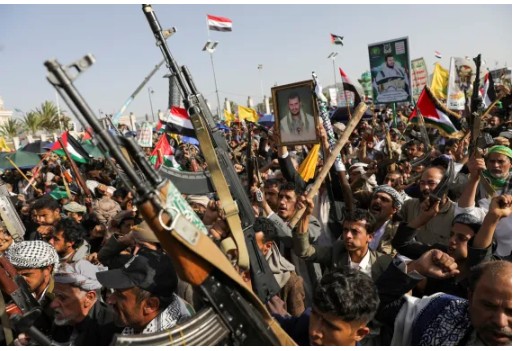 As tensions in the Middle East remain high, the potential for Iran to engage in a broader conflict raises questions about the role its regional allies could play in such a scenario. Iran has built a network of loyal allies and proxy groups across the region, which have already proven instrumental in regional conflicts and power struggles. But how much of a difference could these allies make if Iran were to find itself in a full-scale war?
As tensions in the Middle East remain high, the potential for Iran to engage in a broader conflict raises questions about the role its regional allies could play in such a scenario. Iran has built a network of loyal allies and proxy groups across the region, which have already proven instrumental in regional conflicts and power struggles. But how much of a difference could these allies make if Iran were to find itself in a full-scale war?
Iran’s influence extends well beyond its borders through a combination of ideological, military, and political alliances. This network includes state actors like Syria and non-state actors such as Hezbollah in Lebanon, the Houthis in Yemen, Iraqi militias, and various Palestinian factions. These groups provide Iran with strategic depth, allowing it to exert influence across the Middle East, often in opposition to U.S. and Israeli interests.
Perhaps Iran’s most formidable ally is Hezbollah, the Lebanese Shiite militant group and political party. Hezbollah has a highly trained and experienced fighting force, numbering in the tens of thousands, which has been battle-hardened through years of engagement in the Syrian Civil War. The group’s rocket and missile arsenal is one of the largest and most sophisticated in the region, capable of reaching deep into Israel.
In the event of a war involving Iran, Hezbollah could pose a significant threat to Israel, potentially opening a second front. The group’s vast stockpile of short and medium-range missiles would be a key part of any Iranian strategy to pressure or distract Israel from a direct confrontation with Tehran.
However, Hezbollah’s involvement would depend on a variety of factors, including Lebanese domestic politics, the willingness of Hezbollah’s leadership to risk retaliation on Lebanese soil, and the extent of direct Iranian involvement.
In Iraq, Iran has cultivated deep ties with several militias under the umbrella of the Popular Mobilization Forces (PMF). These groups, many of which are Shia and loyal to Iran, have grown in influence since the defeat of ISIS and are a powerful force in Iraqi politics and security.
Should a regional conflict break out, these militias could launch attacks against U.S. forces stationed in Iraq, as well as disrupt oil exports in the Gulf region. The militias’ proximity to key American and allied military installations in Iraq would make them an immediate concern for U.S. and NATO forces.
However, their effectiveness would depend largely on how coordinated they are with Iranian strategic goals and the overall political landscape in Iraq, where internal divisions sometimes hinder collective action.
In Yemen, the Iranian-backed Houthi rebels have been fighting a Saudi-led coalition since 2015. The Houthis have used Iranian-supplied drones and missiles to strike targets deep within Saudi Arabia, including oil facilities.
While geographically distant from Iran, the Houthis could play a significant role in destabilizing Saudi Arabia and the broader Gulf region in the event of an Iran-centric war. Their continued missile and drone attacks could disrupt Saudi military operations and threaten critical infrastructure, including oil production.
However, the Houthis are engaged in their own protracted civil war, and their ability to escalate their involvement in a broader conflict could be limited by the need to maintain focus on their internal fight against the Yemeni government and Saudi-led forces.
The Syrian government, under President Bashar al-Assad, remains a crucial ally for Iran, largely thanks to Tehran’s support during the Syrian Civil War. Iran’s military presence in Syria, including the Islamic Revolutionary Guard Corps (IRGC) and various Shiite militias, provides Tehran with a foothold close to Israel’s borders.
In the event of war, Syria could serve as a launch pad for attacks against Israel or U.S. forces in the region. However, Syria’s military capabilities have been severely diminished by years of civil war, and the Assad regime would likely be hesitant to fully engage in a broader regional war that could further destabilize the country.
 Iran maintains close ties with several Palestinian factions, including Hamas and Islamic Jihad. While these groups possess limited military capabilities compared to Hezbollah or the Iraqi militias, they could play a symbolic and tactical role in any regional conflict by launching attacks on Israel. These groups are mainly reliant on Iranian financial and military support, including rocket technology, but their geographic confinement to Gaza limits their ability to engage in prolonged military operations.
Iran maintains close ties with several Palestinian factions, including Hamas and Islamic Jihad. While these groups possess limited military capabilities compared to Hezbollah or the Iraqi militias, they could play a symbolic and tactical role in any regional conflict by launching attacks on Israel. These groups are mainly reliant on Iranian financial and military support, including rocket technology, but their geographic confinement to Gaza limits their ability to engage in prolonged military operations.
Iran’s regional allies are a key part of its broader strategy of asymmetrical warfare. Tehran has long relied on proxy groups to extend its influence without engaging in direct military confrontation with stronger adversaries like the U.S. or Israel. This strategy allows Iran to fight on multiple fronts, overwhelm its enemies with a combination of direct and proxy attacks, and complicate any coordinated military response.
However, the effectiveness of Iran’s allies in a full-scale war would depend on how coordinated these groups are, the level of direct Iranian involvement, and the willingness of individual actors to engage in high-risk operations. Additionally, the potential for U.S. or Israeli military intervention could significantly limit the scope of Iran’s allies’ involvement.
While Iran’s network of allies is formidable, it is not without its limitations. Many of these groups, particularly in Iraq and Yemen, face internal political and operational challenges that could limit their effectiveness in a broader conflict. Additionally, regional actors like Saudi Arabia and Israel are well aware of these proxies and have been actively preparing to counter them.
Moreover, the potential for a large-scale war involving Iran would likely bring international pressure, diplomatic isolation, and economic sanctions, which could strain Iran’s ability to sustain its allies financially and militarily over the long term.
Iran’s regional allies could significantly impact the outcome of a regional conflict, particularly in the Gulf, Iraq, Lebanon, and Israel. These groups could launch attacks that would stretch the resources of Iran’s adversaries and create a multi-front war that would be difficult to manage. However, their influence would likely be confined to the region, with limited ability to project power on a global scale.
Ultimately, Iran’s allies provide it with a unique form of strategic depth, but their effectiveness in a full-scale war would depend on coordination, willingness to engage, and the broader geopolitical context. While they could complicate any military action against Iran, their collective power is unlikely to shift the outcome of a war if the U.S. or other major powers become directly involved.
Ennywealth

